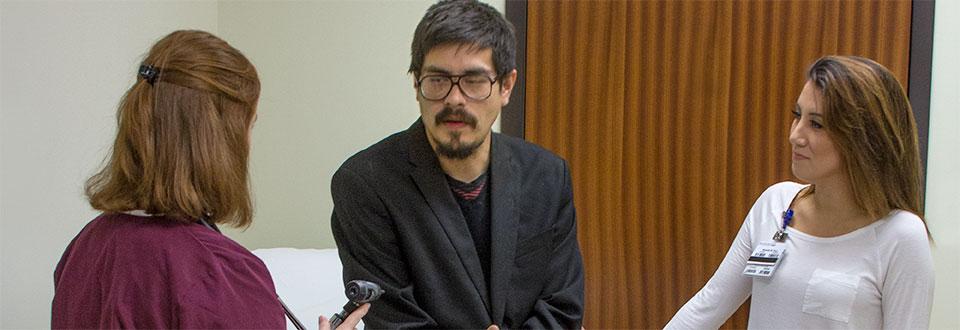What can you do, and what does federal law require you to do, to facilitate language access for Limited English Proficient (LEP) employees, patients, clients, and customers?
Michelle Pinzl’s illuminating GLADC Lunch and Learn presentation was packed with information and strategies on this topic. We learned about the potentially dire consequences of failing to provide trained interpreters in many situations, such as medical and legal circumstances, the reasons that family members should not be called upon to interpret, and the problems with undervaluing trained interpreters, or not knowing where to find them.
We also talked about starting points for organizations to prepare themselves to provide language access services.
For example, you might strategically consider the following questions for your organization:
· Who in our organization is limited English proficient (LEP)?
· In what situations do we or might we interact with LEP people? E.g. in what medical, legal, employee orientation, or customer service situations?
· To whom can we turn if we need an interpreter to manage any of these situations?
· What kinds of protocols can we create in our organization and how can we educate our employees about the legal and ethical necessity of qualified interpreters?
· In the course of serving and adequately communicating with all our employees, clients, patients and customers, what documents are most in need of translation and into what languages?
· Are we hiring people with language skills in order to serve patients, clients and customers in their first languages, and are we rewarding those skills in how we compensate those employees?
Beyond your organization, we can think about the following questions as a community:
· Can we create a central information-sharing resource to help organizations find interpreters, especially for languages of lesser diffusion?
· How can we celebrate language diversity?
· How can we educate others about language access and why it is important?

Photo courtesy of Community Interpreting Certificate at Viterbo University.
Michelle is working on a database with the hope that it will be eventually housed on Viterbo University’s Community Interpreting Certificate webpage. This database is meant to help people find professionally trained interpreters who effectively carry out interpreters’ codes of ethics and standards of practice. It also includes a short list of language service providers who can help in providing resources for over the phone or video remote interpreting. In the meantime, if you’d like to have a list of trained interpreters in the La Crosse area, you can contact Michelle directly at mmpinzl@viterbo.edu
